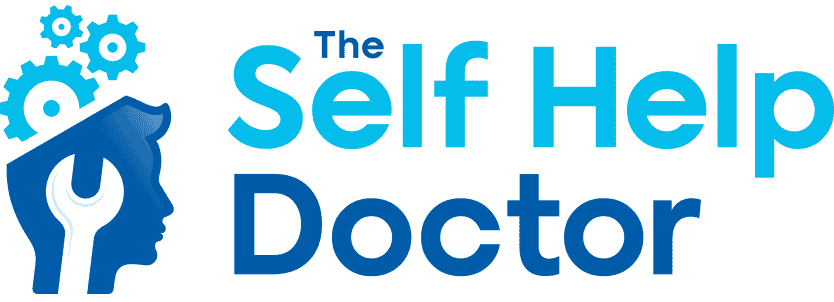How to Break Free from the Chains of Perfectionism

How to Break Free from the Chains of Perfectionism
Perfectionism isn’t just wanting to do your best — it can trap you in endless self-criticism and stress. When your mental health feels tied to flawless results, every mistake feels like failure. The good news? CBT-based tools can help you break this cycle and find balance. Let’s explore practical steps to ease perfectionism’s grip and support your emotional wellness. For more insights, you can also check out this resource.
Understanding Perfectionism’s Grip

Have you ever felt that nothing you do is ever enough? This is how perfectionism tightens its hold on your mental health. It pushes you to set unrealistically high standards, leaving you feeling exhausted and unfulfilled.
Perfectionism and Mental Health Impact
Let’s explore how this relentless pursuit of perfection affects your well-being. Perfectionism isn’t just a personal challenge. It can lead to anxiety and depression. When you constantly feel you’re not measuring up, it drains your energy. You might find yourself feeling trapped, as if you’re locked in a never-ending cycle of self-doubt.
But you’re not alone. Many people experience this struggle. Research shows that people with perfectionistic traits often face heightened stress and dissatisfaction. It’s crucial to recognize this pattern and understand its impact on your life.
The Cycle of Self-Criticism
Self-criticism is like a shadow that follows perfectionism. You might hear a little voice that criticizes every mistake. This cycle can feel impossible to break. Each perceived failure feeds the cycle, amplifying negative thoughts.
But here’s the key insight: perfectionism often distorts your self-view. You may overlook achievements because the focus remains on flaws. To break this cycle, it’s essential to challenge those critical thoughts. Start by recognizing your accomplishments, no matter how small. This shift in focus can gradually weaken the grip of self-criticism.
Practical CBT Tools for Change

Understanding perfectionism is just the beginning. Next, we’ll explore CBT tools that can help you shift your mindset and find balance in your life.
Identifying Unhelpful Thought Patterns
The first step in change is recognizing those pesky thoughts that fuel your perfectionism. These thoughts might sound like, “If it’s not perfect, it’s worthless.” But identifying them is crucial.
Start by keeping a journal. Write down situations where you felt the pressure to be perfect. Note the thoughts that popped into your head. These thoughts are your clues. They reveal the patterns that hold you back.
For instance, consider a time when you avoided a task because you feared it wouldn’t be perfect. Remember, most people think they need to be flawless, but that’s a myth. According to experts, acknowledging these thoughts is the first step in changing them.
Strategies for Balanced Thinking
Now that you know your thought patterns, let’s dive into strategies to shift them. Balanced thinking is about replacing negative thoughts with more realistic ones.
Start with this simple technique: when a critical thought arises, challenge it. Ask yourself, “Is this thought helpful or true?” Replace it with a balanced statement. For example, change “I must be perfect” to “Doing my best is enough.”
Another practical strategy involves setting realistic goals. Break tasks into smaller, manageable steps. This reduces overwhelm and allows you to celebrate small victories along the way. By practicing these strategies, you create room for growth and self-compassion.
Steps Toward Personal Growth

With these CBT tools under your belt, you’re ready to embrace personal growth. Let’s explore how focusing on emotional wellness can transform your journey.
Embracing Emotional Wellness
Emotional wellness starts with acceptance. Accept that mistakes are part of life. Perfection isn’t about never failing; it’s about learning and growing.
Begin by prioritizing self-care. Regularly take time for activities that bring you joy and relaxation. This fosters a healthier relationship with yourself. Also, practice gratitude by noting three positive things each day. It shifts your focus from what’s lacking to what’s abundant.
Remember, the longer you wait to embrace these practices, the more perfectionism can hold you back. Learn more about strategies for growth.
The Role of Self-Help Courses
Self-help courses can be game-changers in your journey toward personal growth. These courses offer structured guidance and practical tools to manage perfectionism.
Imagine having expert-designed resources at your fingertips. Self-help courses, like those offered by Self Help Doctor, provide an opportunity to learn at your own pace. They empower you to take control of your journey toward emotional wellness.
By engaging with these courses, you gain insights from experts who understand the challenges you face. This support system can make a significant difference in your progress. Consider exploring self-help courses to enhance your journey toward growth and well-being.
🌟✨
By understanding perfectionism, using CBT tools, and taking steps toward personal growth, you can break its grip on your life. Remember, you’re not alone on this journey, and change is possible. Start your first step now toward freedom from perfectionism with our free mini-course.




